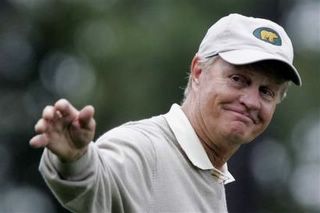In celebration of National Public Radio Begging Month, I offer the following idea: it's time to terminate federal support for National Public Radio. Not because it's biased and tends to present a lopsided leftist...sorry..."progressive" side to news and news analysis, true as that may be. The reason NPR needs to be pulled from the federal teat is because it isn't really public anymore.
Decades ago, arts and education radio broadcasting was almost exclusively a local affair, with independent radio stations operating through universities, colleges, high schools, and public libraries. Its content was, almost by definition, of local origin. Mostly classical, jazz, and American (i.e. folk) music was programmed, along with taped or live lectures by nearby academics, and a generous dollop of local and state news. It wasn't polished, but it really was public - i.e., local - radio.
Enter NPR, which dreamed of a nationwide network of radio stations to bring light and revelation to the masses. As determined by their impeccable tastes and predilections, of course. NPR needed stations and frequency space to build their empire, and in the late 1970s they lobbied the FCC to have the hundreds of low-power (less than 10mi reception radius) radio stations run by community colleges, high schools, and libraries eliminated from the low end of the FM band.
NPR then increased their geographic coverage and changed the program content of its "anchor" stations, primarily the higher-power noncommercial stations of colleges and universities. The nation-wide coverage was provided by the setting up of scores of small repeater stations, effectively monopolizing the FM band below 92MHz. So your contributions went for "keeping your public radio on the air", and also spreading its gospel to your "neighbors" on the other side of your state. It was also ironic that the small broadcast-footprint stations were merely replaced by a little larger robot repeater stations, bringing a homogeneous product to a region where there was once tremendous diversity.
Changing programming content proved challenging, because if done ham-handedly, it would alienate the stations' contributor base before it could either be swapped out with a more pro-NPR support base, or before the current contributor base could be "reeducated" to be more NPR-friendly. But it was done, successfully, at some of the biggest anchors in the country, including the University of Michigan's WUOM. In a now infamous incident, shortly after the 1996 spring fundraiser in which WUOM asked the public to help 'keep the programming that you love on the air' (my paraphrasing), the station management terminated much of the local on-air hosting and changed its format from a locally produced, fine-arts and education station to NPR current-affairs programming. Donovan Reynolds, WUOM station manager and leader of the station's pro-NPR junta, recently observed (Detroit News, March 14 2005):
"No other FM in Michigan was broadcasting public radio news and information as a format...it was a unique niche that we could fill. We put the new format on in '96 not really knowing how well it might do. But it was the right thing to do because we've been very successful at it. Revenue increased (emphasis added)."
Well, at least one now knew what was important to station management, not surprisingly, the same thing that was important to commercial radio stations - increasing listenership and making more money.
So, what now comprises the P in NPR? Looking at the WUOM schedule, we have the following line-up. I've italicized those programs that are locally produced or have significant local (local defined as statewide and the communities within 50 miles of Ann Arbor) content. I've also designated those programs that are provided by a satellite feed from NPR, or from another national public radio content producer:
- BBC World Service (NPR)
- Morning Edition, Weekend Edition, & All Things Considered (NPR)
- The Connection (NPR)
- Talk of the Nation (NPR)
- Diane Rehm (NPR)
- News and Notes (NPR)
- Marketplace (PRI)
- Day to Day (NPR)
- The Next Big Thing (PRI)
- Stateside (locally produced, statewide content)
- Studio 360 (PRI)
- Car Talk (NPR)
- Fresh Air (NPR)
- all other small-slot programs not mentioned above (NPR or PRI)
- all entertainment programs (PHC, American Routes, etc - NPR or PRI)
- Great Lakes Radio Consortium (regional coverage, only 5 mins Mon-Fri)
There you have it: out of 168 weekly programming hours, the flagship public radio station of the State of Michigan, funded in part by the University of Michigan, has less than one hour of regular programming that can be regarded as devoted to Michigan and local (rarely) communities. In a UM meeting in 1998, concern was raised that more university intellectual and education life should be on WUOM, and station management responded that this could be satisified with less than two dozen programs of university musical events, and a steady supply of UM faculty as commentators for NPR news programs.
This isn't public radio, this is corporate radio, marketing to the "Birkenstock Niche". Just like a classic rock, hip-hop, country, or talk-radio format commercial station, only with the commercials crammed into two weeks of the year, and daily on-air "acknowledgements" of corporate and special-interest underwriters.
I have no problem with such a media corporation existing. Best of luck to them in the free market. But let's not kid ourselves: NPR has clearly added to the homogenizing of the airwaves, just like the "commericial" media entities. And it doesn't need a penny of my taxes. The slice of federal funding is relatively small, but that slice should now be removed entirely. The claim of public participation - not just financial support - in "public radio" has become a canard.

